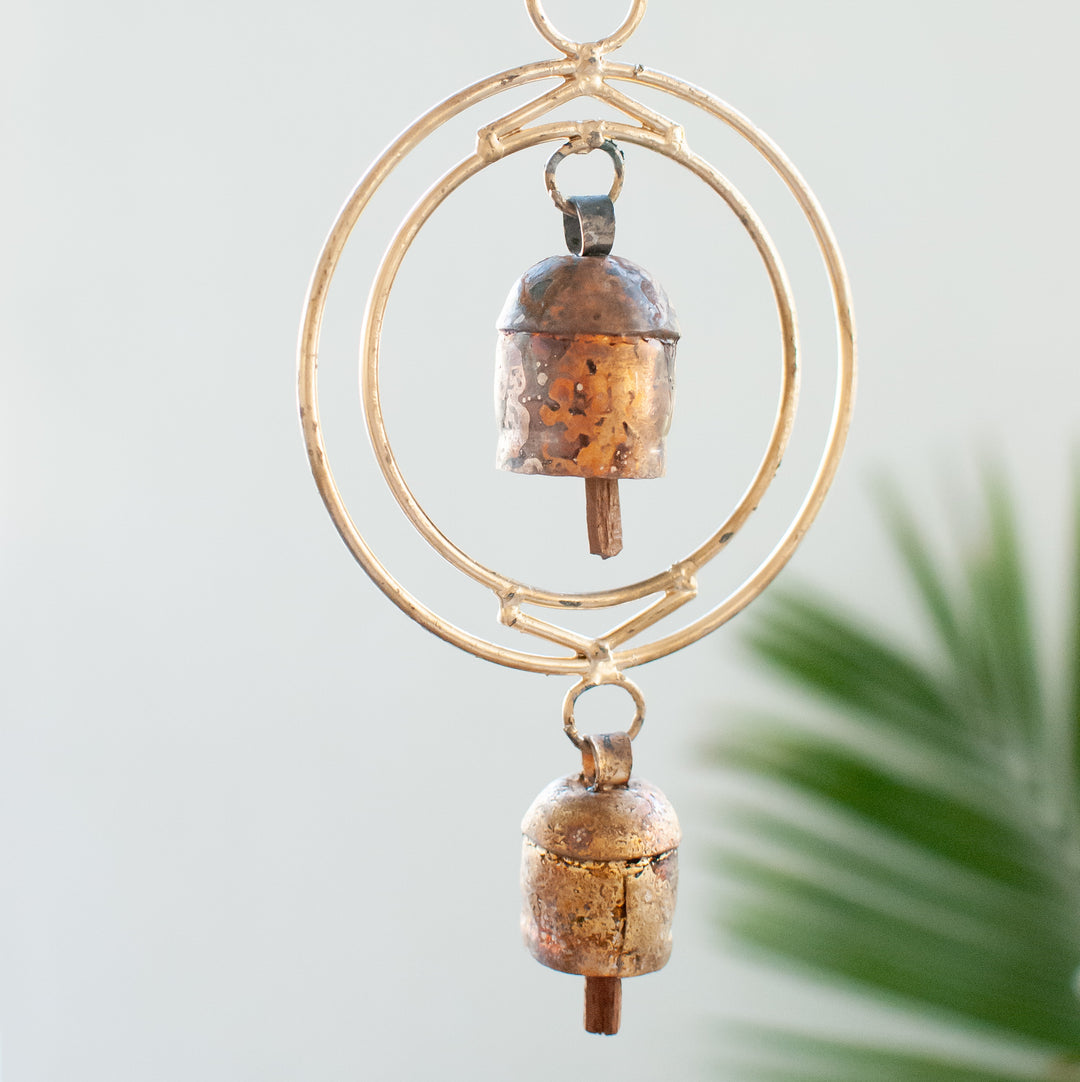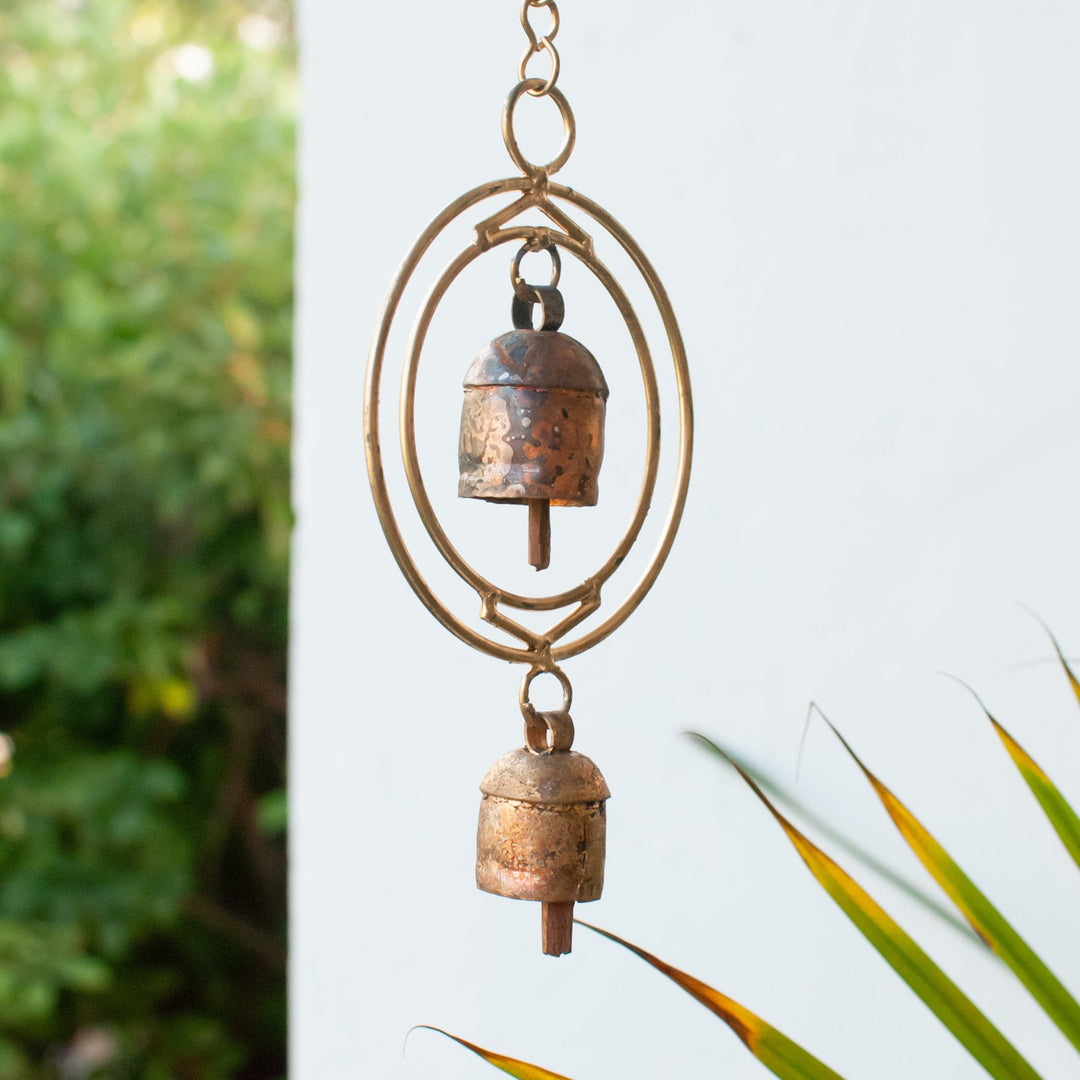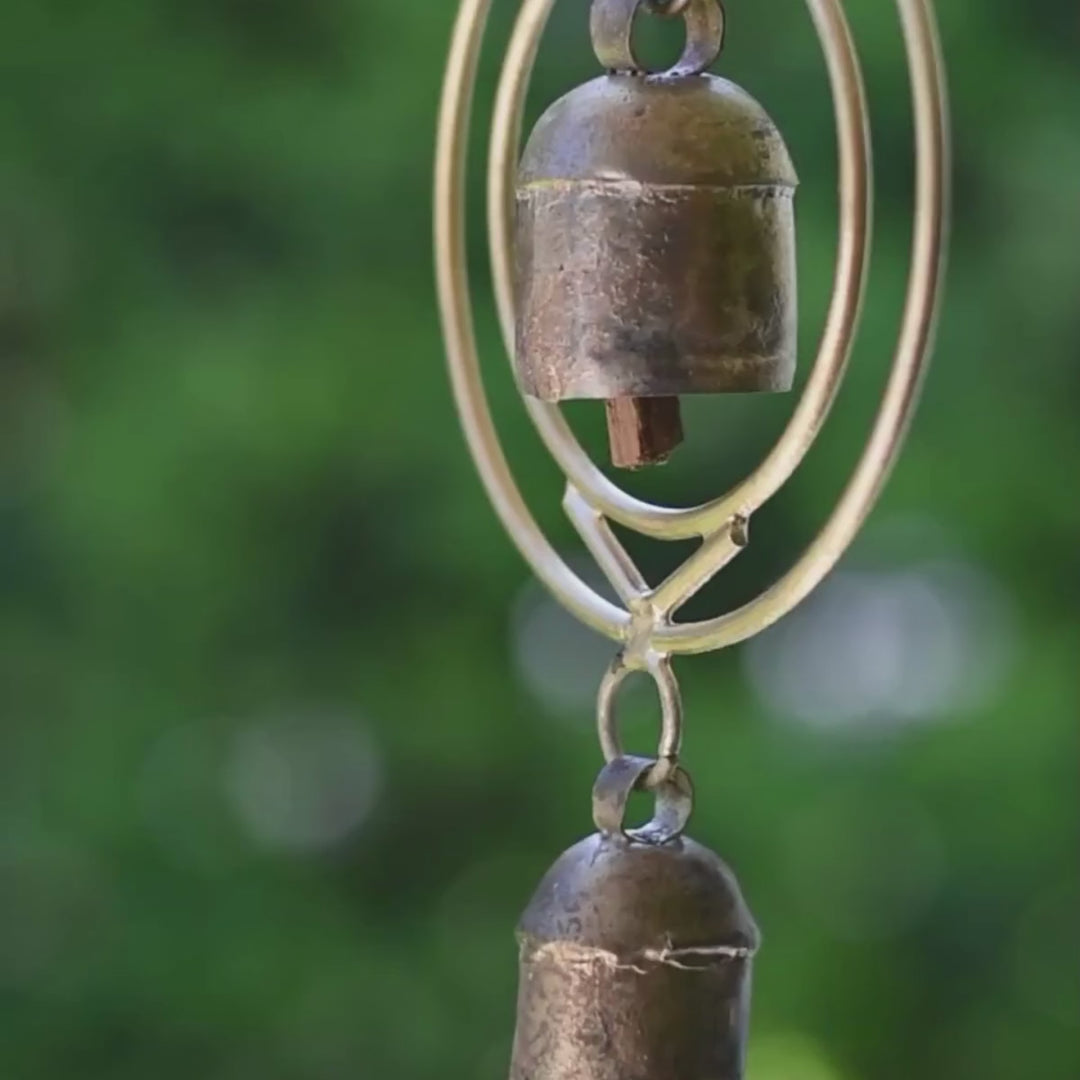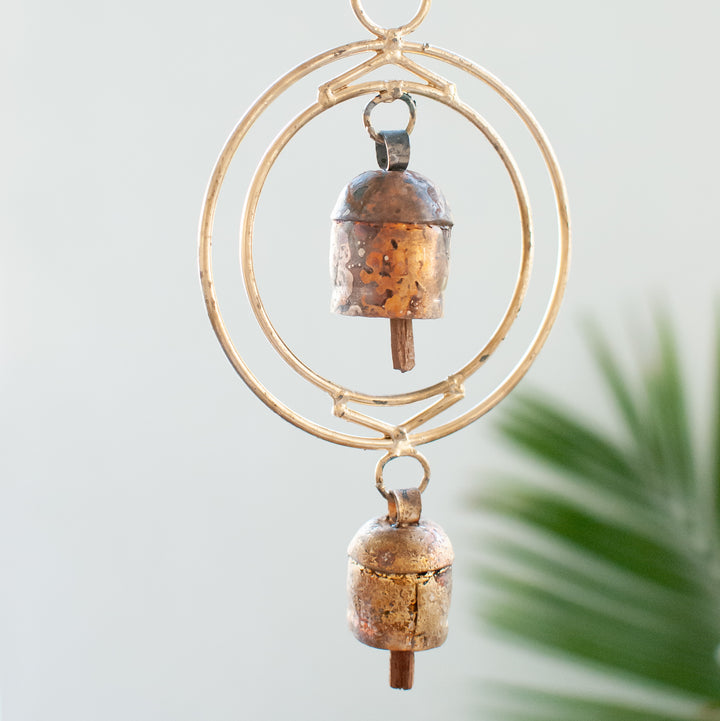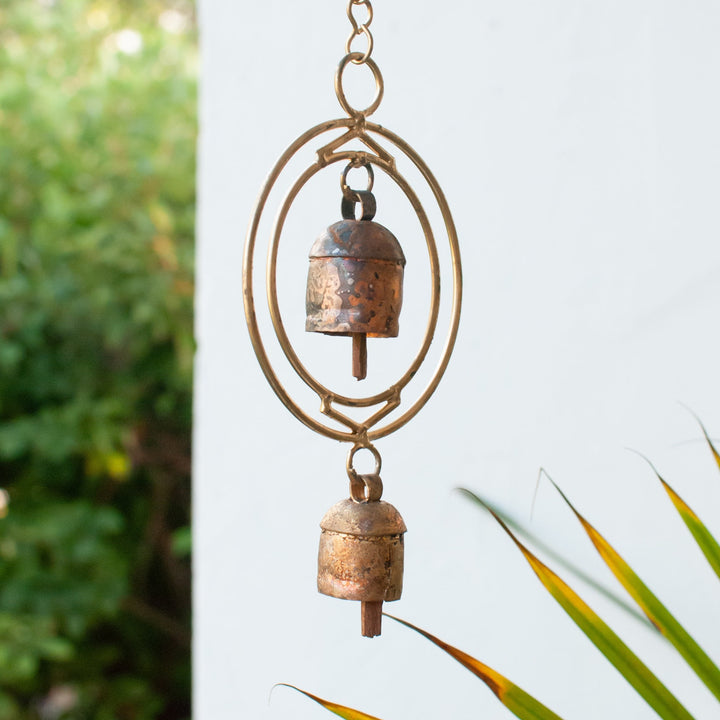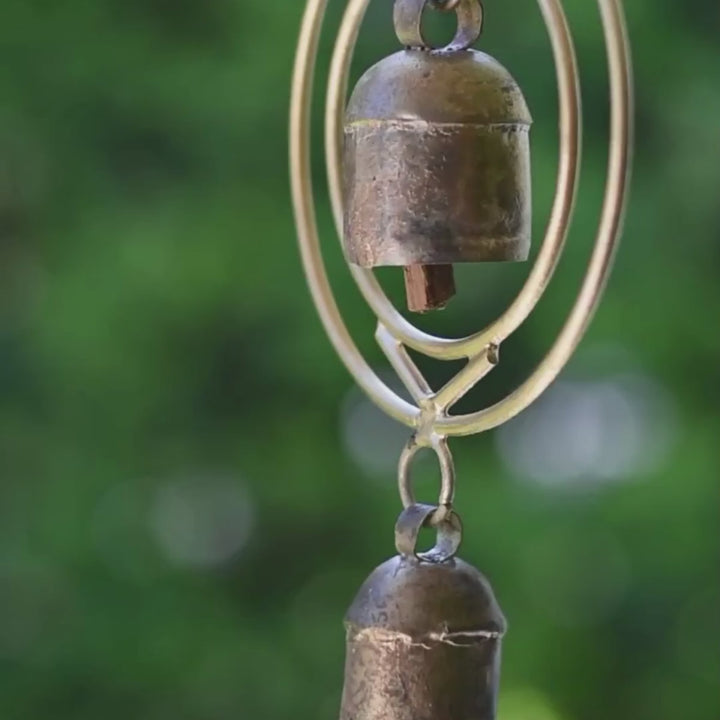
MEMORIAL WIND CHIMES AS SYMPATHY GIFTS
After you lose a loved one, creating a memorial garden in their honor is a beautiful and emotionally centering way to cope with your grief. Along with flowers to attract butterflies and a meaningful garden stone, memorial wind chimes are a special addition to a remembrance garden. The beautiful sound they make in the gentle breeze will remind you of a loved one, as you spend time in your memorial garden.
WHAT DO WIND CHIMES SYMBOLIZE?
To understand the symbolism of wind chimes, it helps to understand the history of wind chimes. Wind chimes were first used by farmers in South East Asia in 3000 BC to ward off animals that might damage their crops. “Most often, these early chimes were crafted out of bamboo, shells, bone, or wood.”1
As time progressed, the popularity of wind chimes increased. “Wind chimes started to become modernized around 1100 B.C. after the Chinese began to cast bells.”2
The advent of bells as part of wind chime design helped propel their popularity. The beautiful melodic sounds that were made by these new bell based chimes were thought to attract love and peace to homes and places of worship and repel negative energy. As economic trade increased in the area, the popularity of wind chimes spread worldwide, and the sound of wind chimes and bells became associated with peace, tranquility, and healing.
Today, wind chimes are beloved for their peaceful and melodic sounds, and they are universally accepted worldwide as a symbol of peace and love.
WHAT IS THE SPIRITUAL MEANING OF WIND CHIMES?
The beautiful sound that is made by wind chimes helped cement wind chimes as a symbol of a deceased loved one. After you lose someone you love, often it feels as though their presence is just right around the corner, waiting to be touched, and something about the sound of a chime helps you feel a connection to them.
Wind chimes are also an invitation to stop and look. In this era of constant input and noise, it can be hard for grieving people to find the peace they need to process their loss. The sound of a wind chime helps to remind the bereaved to stop and reflect on those they have lost and spend time on healing. This type of healing is part of a new type of therapy known as “sound therapy.” As Well and Good has shared, “sound frequencies then slow down brainwavesto a deeply restorative state, which activates the body's system of self-healing.”3 This type of healing can be immensely helpful for a grieving person, and wind chimes can play a special part in that healing.
“Lately a new kind of sound therapy, often called sound healing, has begun to attract a following. Also known as vibrational medicine, the practice employs the vibrations of the human voice as well as objects that resonate -- tuning forks, gongs, Tibetan singing bowls -- to go beyond relaxation and stimulate healing.”4
Many people also use the sounds in wind chimes as part of a practice of prayer or meditation. As Mind Body Green shares, “sound helps create the pathway to this place of stillness the same as a mantra helps you to arrive at the still point of meditation.”5 Wind chimes can be a beautiful part of this approach to healing after loss.
WHY ARE WIND CHIMES USED AS A MEMORIAL?
For those who have lost a loved one, the soft and gentle sound of a wind chime represents the presence of a loved one near. For many people, this melodic sound of a wind chime is a reminder of the love and connection they shared with their deceased loved one.
Many people also believe that the sound of a ringing means that an angel is near. Wind chimes can help those who find comfort in this beautiful folklore by providing their home and yard with the sounds of ringing bells.
Sympathy wind chimes also make a great addition to a memorial garden. Many people choose to grow a memorial garden filled with flowers that will attract butterflies. After the plants are well established, you can add a memorial garden stone, a beautiful memorial garden bench, and your wind chime.
HOW DO YOU SEND WIND CHIMES TO A FUNERAL?
Wind chimes for funerals are one of the most special sympathy gifts you can send to a grieving family. It is a gentle and kind gift that will let the family know you remember their loss. You can choose to send the wind chime directly to the bereaved family’s home if you prefer them to open it in the privacy of their own home.
Or, many people choose to bring a memorial wind chime to a funeral. If you know the address of the funeral home ahead of time, you can coordinate with the funeral home to deliver the wind chimes. However, be sure to choose a company who will package the memorial wind chimes as a gift so that the recipient feels loved and remembered. If you plan on attending the funeral, you can also order the chimes to be delivered to your own home and deliver them at the funeral. It can be a thoughtful and kind gesture to gift the family with funeral wind chimes during such a difficult time.
WHERE SHOULD YOU HANG WIND CHIMES?
Wind chimes can be hung in many places around the home and garden. If you want a reminder of your loved one as you come and go from home to work, we love the idea of placing your wind chimes near a front door or front porch. As you come and go throughout the day, the wind chimes will be a symbol of your loved one.
Those who choose to incorporate wind chimes into a memorial garden will want to place their chimes on the outskirts of that memorial garden. This can be done by affixing the wind chime to a nearby tree or flowering plant. You can also use a garden stake to display the wind chime in the center of the garden and ensure that the sound is easy to hear.
A backyard or back patio is another great place to display wind chimes. As the summertime approaches, many of us will be spending more time in our outdoor spaces. Wind chimes displayed on the back patio or back porch can help remind you of the presence of your loved one during the time you spend doing your normal activities.
Lastly, wind chimes should also be placed in an area that catches enough wind for the chimes to regularly make sound. Many people suggest the corners of a home since this area provides a steady cross breeze in many different weather conditions.
WHERE SHOULD YOU NOT HANG WIND CHIMES?
Since one of the most special parts of a wind chime is the beautiful tinkling sound they made, we recommend avoiding hanging wind chimes in places where the wind will not catch the bell. Many people also recommend avoiding hanging wind chimes in the direct middle of a room or patio, as the center of a room can sometimes be distracting visually.
If you live in an apartment or home without any outdoor space for a wind chime, there are some beautiful options for indoor wind chimes! These chimes are often more intricate and delicate than outdoor chimes and cannot handle rain, cold, or heat that comes with natural weather. But, while these chimes cannot handle the elements, they can be especially beautiful and work well with indoor decor.
IS GIFTING WIND CHIMES GOOD?
Wind chimes are a perfect gift for a grieving person. While customized gifts are perfect for some people, sometimes for others they can be too directly triggering of grief to make a great sympathy gift. In those instances, a wind chime makes the perfect alternative. A sympathy wind chime gift is thoughtful, acknowledges loss,and lets a person know that you see their grief. It is a gentle gift that you can be sure will not further trigger a grieving person’s pain.
Wind chimes are an especially perfect gift for anyone who loves gardening. There are so many memorial chimes that are perfect for outdoor use, and you can shop for different styles and decor based on the type of garden that your friend enjoys.
Lastly, if you are looking for a group gift for a co-worker or acquaintance, look no further than wind chimes. This gift is gentle, thoughtful, and works well for any type of person.
We hope this list about the benefits of memorial wind chimes as sympathy gifts help you find the perfect thoughtful sympathy gift!
Sources:
Johanna
Johanna is co-founder of laurelbox, an online store with gifts to care for the soul after loss.





